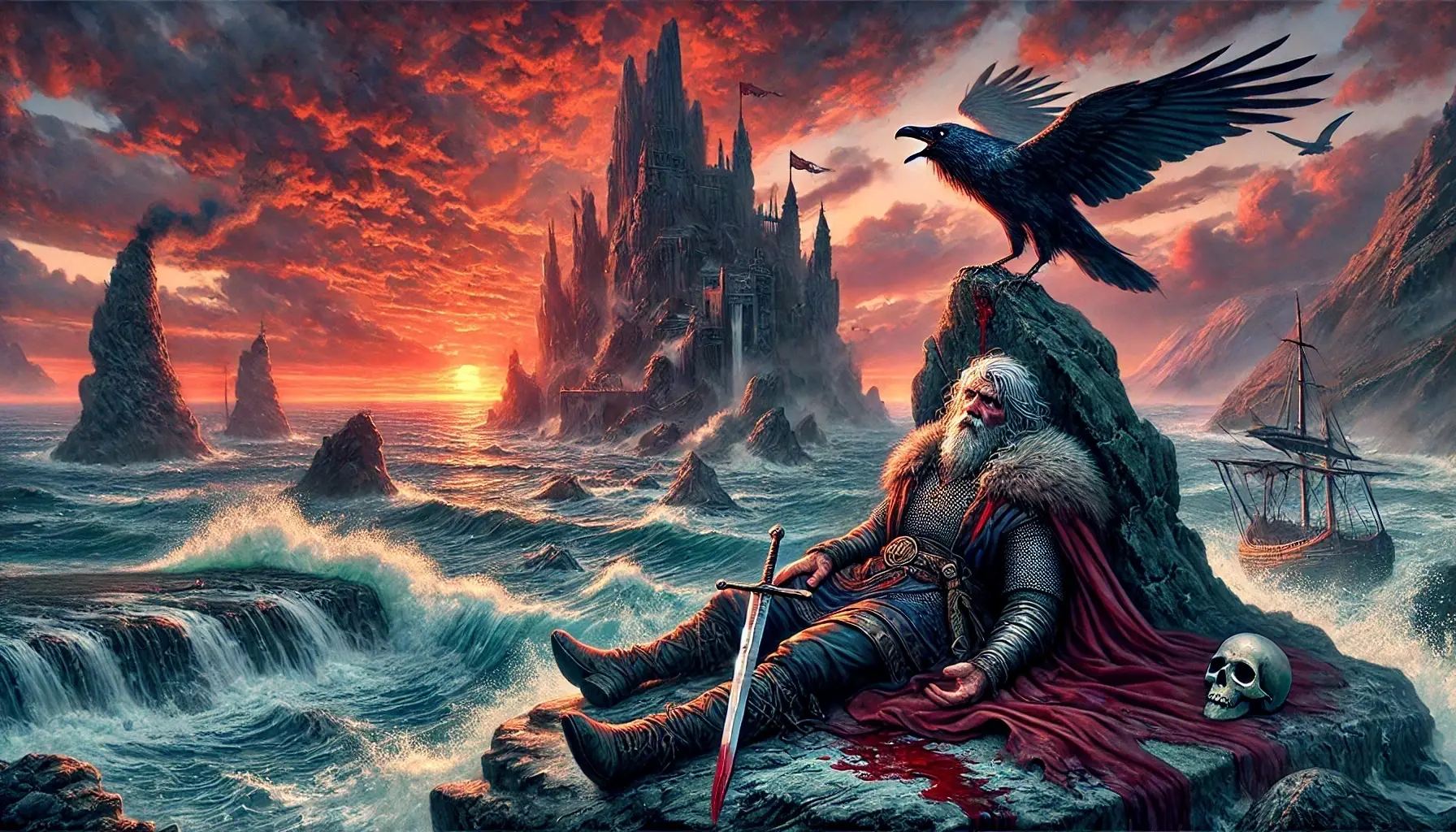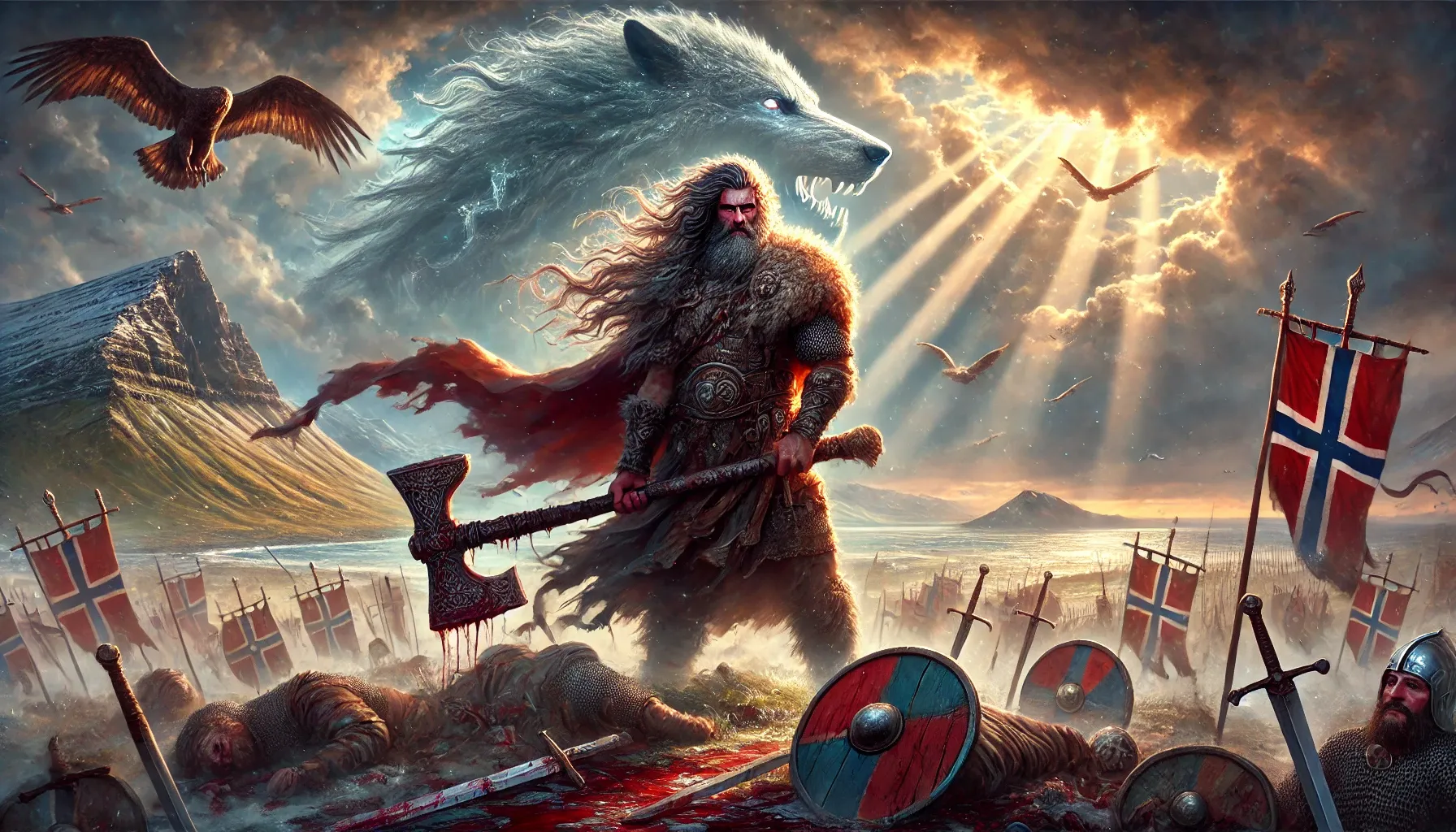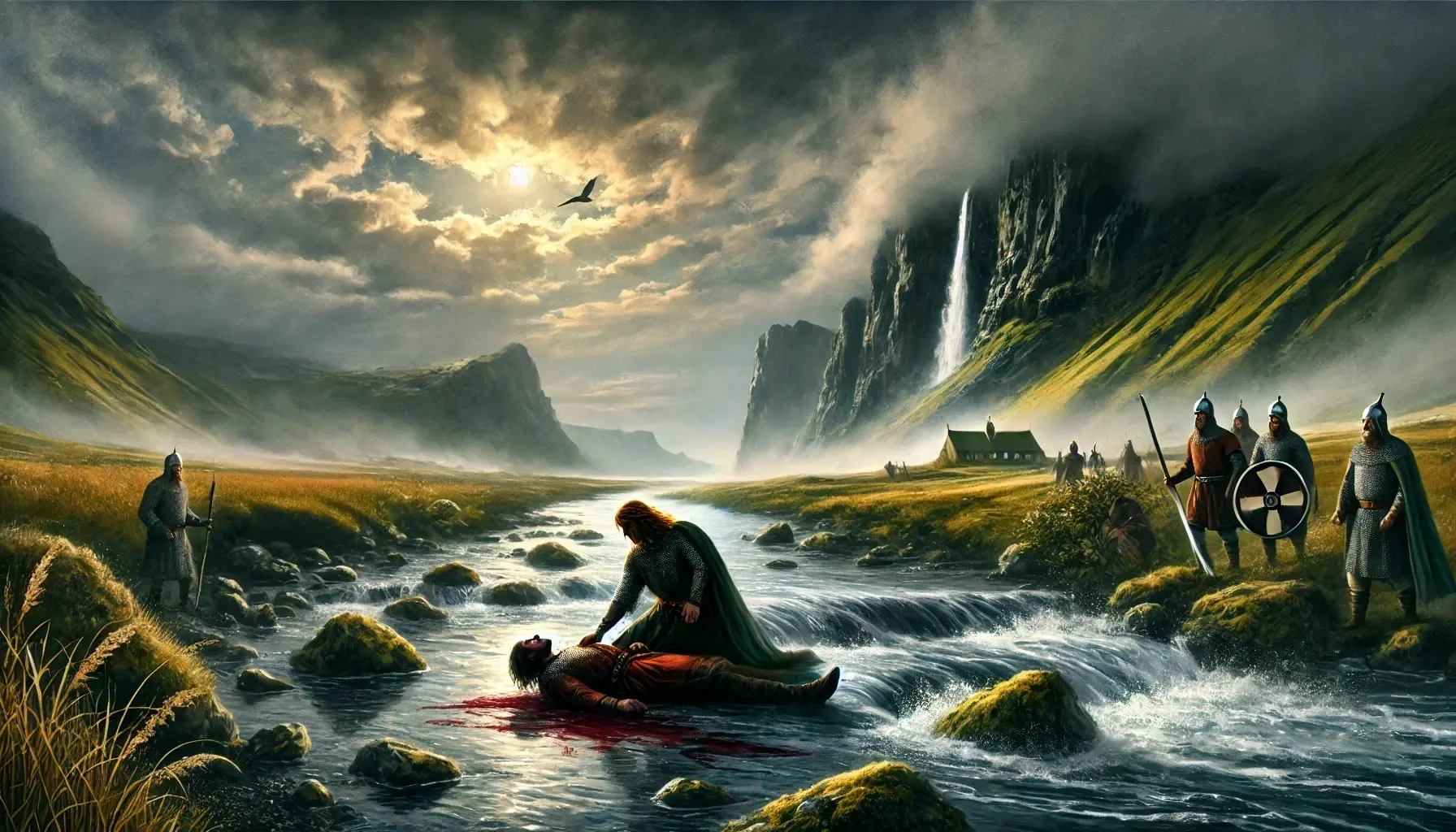The Roots of Grettir’s Defiance
In the craggy landscapes of 10th-century Iceland, where volcanic cliffs met the relentless sea, a boy named Grettir Ásmundarson was born to the farmstead of Bjarg. His mother, Ásdís, was a woman of indomitable will, and his father, Ásmundr, was stern and unyielding. From his earliest days, Grettir exhibited a wildness that set him apart from his kin. While other children tended sheep and memorized the sagas of their ancestors, Grettir shirked such labors, drawn instead to mischief and brooding solitude.
Grettir’s temper flared hot and often, and he was not one to suffer insult without reply. When, as a youth, he burned the saddle of a visiting chieftain in a fit of defiance, the act marked him as a man unwilling to bow to authority. His father, enraged by this act, banished him to the outer reaches of the farm. Yet in this isolation, Grettir’s strength burgeoned. He wrestled the wind, scaled jagged peaks, and swam against the ferocious tides, forging a body as unyielding as the basalt columns that lined the shores of his homeland.
A Fighter’s Path
As he reached manhood, Grettir’s fame spread across Iceland, though not always in ways he desired. He was a man of immense strength and skill, capable of feats that few could match. But his brawling nature often embroiled him in disputes. He killed men in anger, sometimes justly, sometimes less so, and the blood he spilled stained his name.
One such killing occurred at a winter feast, when a drunken quarrel erupted between Grettir and a rival. The clash ended with Grettir driving his blade deep into the man’s chest. Though he claimed self-defense, the elders deemed his actions excessive, and he was declared an outlaw. Thus began his life as a fugitive, a fate that would define him and haunt him to the end of his days.
The Haunting of Grettir
Grettir’s wanderings took him to desolate landscapes where no man dared linger. He took refuge in caves and abandoned farmsteads, surviving by wit and brute force. Yet it was not only the laws of men that pursued him. Iceland was a land steeped in superstition, and its wilds were said to harbor spirits as restless as the dead.
At a remote farmstead called Thorhall, Grettir encountered a presence that would chill even his mighty heart. The farm was plagued by Glámr, a revenant who terrorized the living. Grettir, ever the seeker of renown, vowed to vanquish the creature. On a night of biting frost, he confronted Glámr beneath a pale moon. The battle was savage; Glámr’s strength matched Grettir’s own, and their struggle shook the earth.
At last, Grettir triumphed, but as Glámr fell, he cursed his slayer. “Your strength will bring you only misery,” the revenant hissed. “You will be shunned by all, and your death will come in darkness.” Grettir dismissed the words as the spiteful utterings of a defeated foe, but the curse would shadow him henceforth.
A Life in the Shadows
Outlawry in Iceland was a fate worse than death for many, for it rendered a man an exile, stripped of all protection and kinship. Grettir’s exploits grew bolder, yet so too did his isolation. He raided farms, wrestled berserkers, and stood against bands of men sent to capture him. His deeds became the stuff of legend, recited in hushed tones by those who admired his courage even as they feared his wrath.
But Grettir’s victories came at a cost. His enemies multiplied, and those who might have been allies turned their backs, fearing association with an outlaw. He sought solace in poetry, composing verses that revealed a mind as sharp as his sword. Yet even his words carried the weight of despair, a longing for fellowship denied by fate.
The Final Stand
Years passed, and Grettir’s strength began to wane. He took refuge on the island of Drangey, a jagged fortress of rock rising from the sea. Here, with his brother Illugi and a loyal servant, Grettir defied the world. The island offered sanctuary, but it also became a prison, its isolation mirroring the exile of Grettir’s soul.
His enemies, relentless and cunning, plotted his downfall. A man named Thorbjörn Ángrimsson, driven by vengeance and greed, bribed a servant to sabotage Grettir’s supplies. Weakened by hunger and illness, Grettir fell prey to an ambush. Though he fought with the ferocity of a cornered wolf, his strength failed, and he succumbed to his wounds.
The Shadow of Grettir
In the aftermath, Illugi, steadfast to the end, was also slain, and the island fell silent but for the cries of gulls and the crashing waves. Grettir’s body, scarred and broken, was laid upon the cold rock, his sword resting beside him. His enemies took his head as a trophy, yet they could not sever the spirit of the man whose defiance echoed across the ages.
As the sun dipped below the horizon, casting the sea in hues of blood and gold, a raven circled above Drangey. It landed upon the stone where Grettir had made his final stand, its eyes gleaming with an otherworldly intelligence. Perhaps it was a messenger from the gods, or perhaps merely a scavenger drawn by the scent of death. Whatever its nature, it lingered, a silent witness to the tragedy and grandeur of a life lived beyond the bounds of ordinary men.



